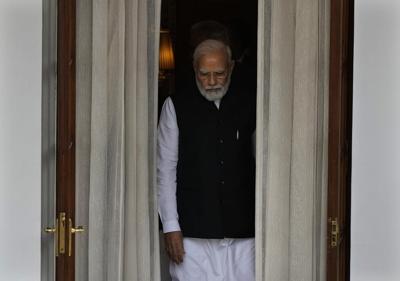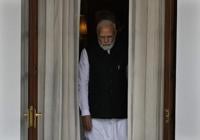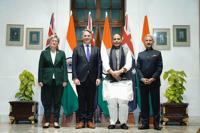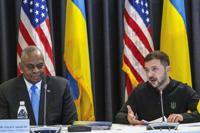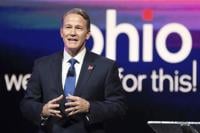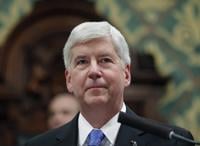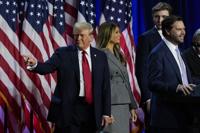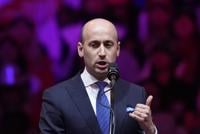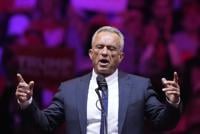WASHINGTON (AP) — U.S. congressional leaders have invited Indian Prime Minister Narendra Modi to address a joint meeting of Congress during a visit to Washington later this month as the U.S. looks to deepen its bonds with India, the world's most populous democracy, to counter China's growing influence even as Modi has faced criticism for eroding India's democratic traditions and human rights.
House Speaker Kevin McCarthy, Senate Majority Leader Chuck Schumer and other leaders announced Friday that Modi has been invited to make the address on June 22, stating in a letter that the “partnership between our two countries continues to grow” and calling the address an “opportunity to share your vision for India’s future and speak to the global challenges our countries both face.”
The U.S. is seeking to forge stronger ties overseas — especially in Asia — to counter China's aggression in the region. Modi's congressional address would come amid , which includes plans to celebrate Modi with high diplomatic honors reserved for close U.S. allies.
The White House has said that Modi's visit will be a chance to build on a commitment to a free and secure Indo-Pacific region, as well as develop technology partnerships and tackle climate change.
in Japan last month at the Group of Seven summit, and he was expected to travel with the prime minister to later meetings in Papua New Guinea and Australia. But, the second leg of Biden's trip was canceled so the president could travel home to deal with the stand-off with House Republicans over lifting the U.S. national debt.
Congress routinely welcomes heads of state to deliver an address during a joint meeting, a high-profile opportunity to showcase bonds between the U.S. and other nations. to address Congress in 2016.
Modi's visit seven years ago came after the politician was shunned for years because of religious violence in his home state while he was chief minister. Since ascending to become prime minister of India in 2014, his Hindu nationalist party has , cracked down on and introduced divisive policies that discriminate against Muslims and other minorities.
India routinely denies criticism of its human rights and civil liberties record.
Modi has also only lightly criticized Russia's invasion of Ukraine and refused to impose sanctions.
Despite those concerns, the U.S. has more to gain than lose from a close friendship with India, the White House has reasoned. Biden is looking to strengthen , an international partnership with the U.S., Australia, India and Japan, that is seen as a potential bulwark against China's dominance in the region.
Congressional leaders seemed to agree. Their letter to Modi states, “We look forward to paving the way for greater collaboration between our countries in the years to come.”

